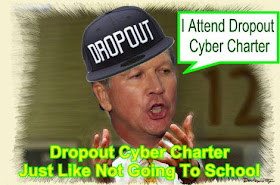Coup in Turkey: Is Fetullah Gulen Behind It?

The news channels report that there is a military coup underway in Turkey.
The prime minister accuses Fetullah Gulen of staging the coup “from Pennsylvania.
Gulen sponsors one of the biggest charter chains in the U.S. and is one of the biggest recipients of HB-1 visas for Turkish teachers to staff his charter schools.
One report:
Turkish Prime Minister Binali Yildirim said Friday evening that an attempted military coup was underway. In Istanbul, bridges were immediately blocked and jets were flying low above the capital city of Ankara. Reports indicated that Facebook, Twitter, Instagram and YouTube were shut down in the country. Turkish TV showed footage of military tanks at Istanbul’s Atatürk International Airport, where suicide bombers killed more than 40 people last month. Additionally, gunfire was reportedly heard in Ankara.The Turkish Army said in a statement that it had taken over the government, however that does not mean the entire military participated in the coup attempt. “Turkish Armed Forces have completely taken over the administration of the country to reinstate constitutional order, human rights and freedoms, the rule of law and general security that was damaged,” the army said. “All international agreements are still valid. We hope that all of our good relationships with with all countries will continue.”The Turkish government denies those claims. Turkey’s justice minister says followers of a U.S. imam, Fethullah Gulen, are staging the coup. U.S. military officials seemed as surprised by the actions of their NATO partners as everyone else. A defense official told The Daily Beast: “We are watching events on television just like you are.”
Erdogan believes that the Gulenists are behind the coup.
Who knew that “public schools” would be backers of a coup in Turkey, a key ally?Coup in Turkey: Is Fetullah Gulen Behind It? | Diane Ravitch's blog:

Big Education Ape: Update: Gulen Harmony charter school network accused of bias and self-dealing Dallas Morning News - http://go.shr.lc/1qV85Hm
Big Education Ape: Turkey Links Texas Charter Schools to Dissident - WSJ - http://go.shr.lc/1OW1ZfV
Big Education Ape: Magnolia Science Academy - A Gulen Charter School: Gulen Magnolia Science Academy links discussed at LAUSD board meeting -http://bigeducationape.blogspot.com/2016/06/magnolia-science-academy-gulen-charter.html














 Network for Public Education Action is a 501 (c)(4) organization. You can make a non-tax deductible donation
Network for Public Education Action is a 501 (c)(4) organization. You can make a non-tax deductible donation 





